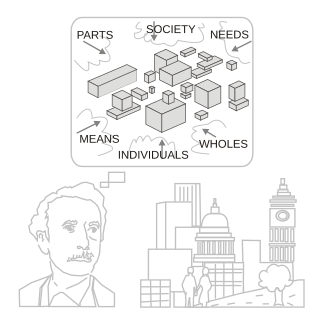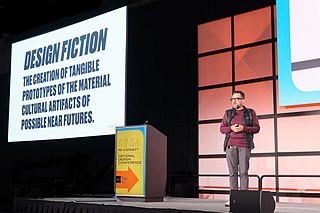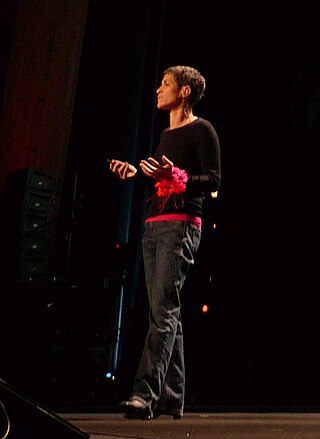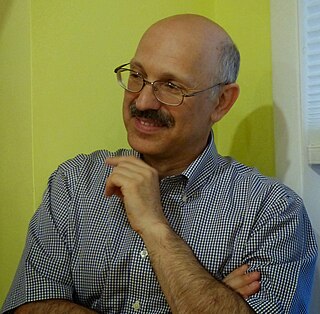Work
His research includes the use of fractal patterns in African architecture, art, and religion, and the relationships between indigenous cultures and modern technology, such as that between Native American cultural and spiritual practices and cybernetics. He holds a bachelor's degree in cybernetics and a master's in systems engineering both at the University of California, Los Angeles, and a Ph.D. in history of consciousness at the University of California, Santa Cruz. A Fulbright fellowship enabled his postdoctoral field research on African ethnomathematics, which was later published in the book African Fractals: Modern Computing and Indigenous Design.
Eglash has also conducted studies in teaching children math and computing through simulations of indigenous and vernacular cultural practices. He explains that the simulations do not impose math externally, but rather translate the mathematical ideas already present in the cultural practices to their equivalent form in school-taught math. Examples include transformational geometry in cornrow braiding, spiral arcs in graffiti, least common multiples in percussion rhythms, and analytic geometry in Native American beadwork. His approach is one of many attempts to draw the inspiration to learn out of students' own cultural backgrounds.
He also studies social justice issues as they manifest in the practice of science and technology, ranging from the ethnic identity of “nerds” to the so-called appropriation of science and technology by groups disempowered on the basis of race, class, gender. Another branch of this research explores how the “bottom-up” egalitarian principles found in many indigenous cultures could be applied to modern society in fields from economics to political science.
He has served as a senior lecturer in comparative studies at Ohio State University, and is currently a professor at the University of Michigan, Ann Arbor.

In mathematics, a fractal is a geometric shape containing detailed structure at arbitrarily small scales, usually having a fractal dimension strictly exceeding the topological dimension. Many fractals appear similar at various scales, as illustrated in successive magnifications of the Mandelbrot set. This exhibition of similar patterns at increasingly smaller scales is called self-similarity, also known as expanding symmetry or unfolding symmetry; if this replication is exactly the same at every scale, as in the Menger sponge, the shape is called affine self-similar. Fractal geometry lies within the mathematical branch of measure theory.

The history of mathematics deals with the origin of discoveries in mathematics and the mathematical methods and notation of the past. Before the modern age and the worldwide spread of knowledge, written examples of new mathematical developments have come to light only in a few locales. From 3000 BC the Mesopotamian states of Sumer, Akkad and Assyria, followed closely by Ancient Egypt and the Levantine state of Ebla began using arithmetic, algebra and geometry for purposes of taxation, commerce, trade and also in the patterns in nature, the field of astronomy and to record time and formulate calendars.
A nerd is a person seen as overly intellectual, obsessive, introverted, or lacking social skills. Such a person may spend inordinate amounts of time on unpopular, little known, or non-mainstream activities, which are generally either highly technical, abstract, or relating to niche topics such as science fiction or fantasy, to the exclusion of more mainstream activities. Additionally, many so-called nerds are described as being shy, quirky, pedantic, and unattractive.

An academic discipline or field of study is a branch of knowledge, taught and researched as part of higher education. A scholar's discipline is commonly defined by the university faculties and learned societies to which they belong and the academic journals in which they publish research.
In mathematics education, ethnomathematics is the study of the relationship between mathematics and culture. Often associated with "cultures without written expression", it may also be defined as "the mathematics which is practised among identifiable cultural groups". It refers to a broad cluster of ideas ranging from distinct numerical and mathematical systems to multicultural mathematics education. The goal of ethnomathematics is to contribute both to the understanding of culture and the understanding of mathematics, and mainly to lead to an appreciation of the connections between the two.

Computer science and engineering (CSE) is an academic program at many universities which comprises approaches of computer science and computer engineering. There is no clear division in computing between science and engineering, just like in the field of materials science and engineering. However, some classes are historically more related to computer science, and other to computer engineering. CSE is also a term often used in Europe to translate the name of technical or engineering informatics academic programs. It is offered in both undergraduate as well postgraduate with specializations.

Systems science, also referred to as systems research, or, simply, systems, is a transdisciplinary field that is concerned with understanding simple and complex systems in nature and society, which leads to the advancements of formal, natural, social, and applied attributions throughout engineering, technology and science, itself.

In sociology, social complexity is a conceptual framework used in the analysis of society. In the sciences, contemporary definitions of complexity are found in systems theory, wherein the phenomenon being studied has many parts and many possible arrangements of the parts; simultaneously, what is complex and what is simple are relative and change in time.
Ancient Egyptian mathematics is the mathematics that was developed and used in Ancient Egypt c. 3000 to c. 300 BCE, from the Old Kingdom of Egypt until roughly the beginning of Hellenistic Egypt. The ancient Egyptians utilized a numeral system for counting and solving written mathematical problems, often involving multiplication and fractions. Evidence for Egyptian mathematics is limited to a scarce amount of surviving sources written on papyrus. From these texts it is known that ancient Egyptians understood concepts of geometry, such as determining the surface area and volume of three-dimensional shapes useful for architectural engineering, and algebra, such as the false position method and quadratic equations.

Julian Bleecker is an artist and technologist with a history developing innovative mobile research projects.
Ethnocomputing is the study of the interactions between computing and culture. It is carried out through theoretical analysis, empirical investigation, and design implementation. It includes research on the impact of computing on society, as well as the reverse: how cultural, historical, personal, and societal origins and surroundings cause and affect the innovation, development, diffusion, maintenance, and appropriation of computational artifacts or ideas. From the ethnocomputing perspective, no computational technology is culturally "neutral," and no cultural practice is a computational void. Instead of considering culture to be a hindrance for software engineering, culture should be seen as a resource for innovation and design.

Margaret Wertheim is an Australian-born science writer, curator, and artist based in the United States. She is the author of books on the cultural history of physics, and has written about science, including for the New York Times, Los Angeles Times, Guardian, Aeon and Cabinet. Wertheim and her twin sister, Christine Wertheim, are co-founders of the Institute For Figuring (IFF), a Los Angeles–based non-profit organization through which they create projects at the intersection of art, science and mathematics. Their IFF projects include their Crochet Coral Reef, which has been shown at the 2019 Venice Biennale, Hayward Gallery (London), Museum of Arts and Design (NYC), and the Smithsonian's National Museum of Natural History. For her work with public science engagement, Wertheim won the 2016 Klopsteg Memorial Award from the American Association of Physics Teachers and Australia's Scientia Medal (2017).
Thomas Fuller, also known as "Negro Demus" and the "Virginia Calculator", was an enslaved African renowned for his mathematical abilities.

Management cybernetics is concerned with the application of cybernetics to management and organizations. "Management cybernetics" was first introduced by Stafford Beer in the late 1950s and introduces the various mechanisms of self-regulation applied by and to organizational settings, as seen through a cybernetics perspective. Beer developed the theory through a combination of practical applications and a series of influential books. The practical applications involved steel production, publishing and operations research in a large variety of different industries. Some consider that the full flowering of management cybernetics is represented in Beer's books. However, learning continues.

Ordinary trigonometry studies triangles in the Euclidean plane . There are a number of ways of defining the ordinary Euclidean geometric trigonometric functions on real numbers, for example right-angled triangle definitions, unit circle definitions, series definitions, definitions via differential equations, and definitions using functional equations. Generalizations of trigonometric functions are often developed by starting with one of the above methods and adapting it to a situation other than the real numbers of Euclidean geometry. Generally, trigonometry can be the study of triples of points in any kind of geometry or space. A triangle is the polygon with the smallest number of vertices, so one direction to generalize is to study higher-dimensional analogs of angles and polygons: solid angles and polytopes such as tetrahedrons and n-simplices.

Genevieve Bell is the Vice-Chancellor of the Australian National University and an Australian cultural anthropologist. She is best known for her work at the intersection of cultural practice research and technological development, and for being an industry pioneer of the user experience field. Bell was the inaugural director of the Autonomy, Agency and Assurance Innovation Institute (3Ai), which was co-founded by the Australian National University (ANU) and CSIRO’s Data61, and a Distinguished Professor of the ANU College of Engineering, Computing and Cybernetics. From 2021 to December 2023, she was the inaugural Director of the new ANU School of Cybernetics. She also holds the university's Florence Violet McKenzie Chair, and is the first SRI International Engelbart Distinguished Fellow. Bell is also a Senior Fellow and Vice President at Intel. She is widely published, and holds 13 patents.
Modern elementary mathematics is the theory and practice of teaching elementary mathematics according to contemporary research and thinking about learning. This can include pedagogical ideas, mathematics education research frameworks, and curricular material.

Vyacheslav (Slava) Alexandrovich Gerovitch is an American historian of science of Russian origin, considered a leading scholar on Soviet space program history in the US and Cybernetics in the Soviet Union.












